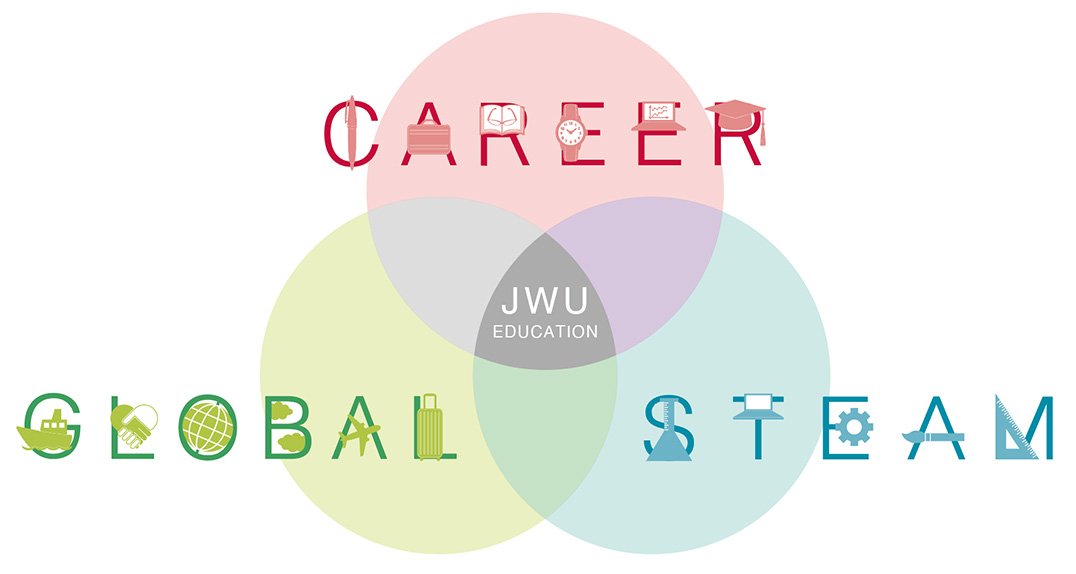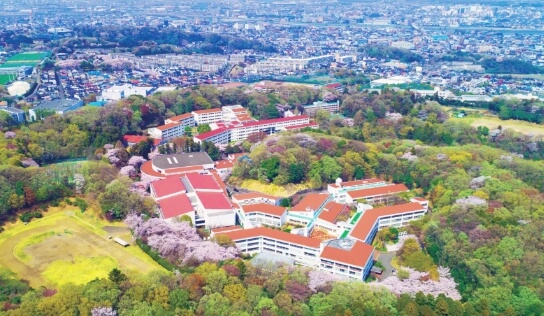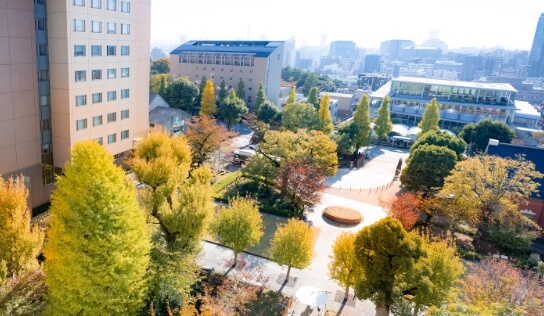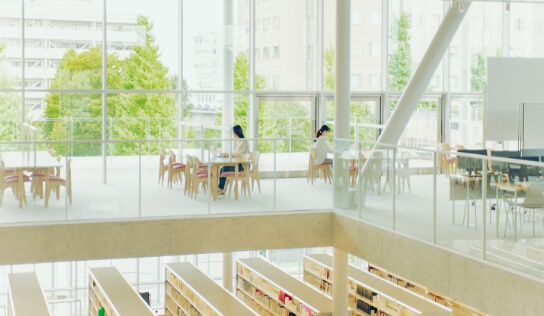
Regarding integrated education at Japan Women’s University
Japan Women’s University provides integrated education from its kindergarten through to the University. The origins of this date back to the affiliated Girls’ High School (which later became the Junior High School affiliated with J.W.U. and Senior High School affiliated with J.W.U.) established at the same time as the University in 1901, and the Homei Kindergarten affiliated with J.W.U. and the Homei Elementary School affiliated with J.W.U., which were established four years later in 1906.The school’s founder Jinzo Naruse advocated the necessity of an educational system running from kindergarten to university, and made a reality of this vision before any other university.
The educational philosophy of the University is to nurture each infant, child, pupil and student so that they understand themselves, and while maintaining a harmonious humanity and sense of social responsibility, can make contributions to the world at large. In order to realize this philosophy, the University cites the three pillars of “global education,” “STEAM education,” and “career education.” In the so-called “100-year life era,” and in a society said to be full of uncertainties, the University aims to foster women who can bring out their full potential, proactively participate in society and create their own lives.
Global education

The global education at Japan Women’s University provides learning opportunities through all sorts of experiences so that our children, pupils and students acquire a global perspective, respect diversity, and develop into human resources who can be active throughout the world.
Linguistic and communications skills: Through linguistic education the University fosters among students a confidence to communicate with the outside world and the skills to exchange opinions with ease. Focusing mainly on the acquisition of English language abilities, the University supports ease of communications in international environments.
Initiative and enthusiasm, spirit of challenge, cooperativeness and flexibility, sense of responsibility and mission: The University respects the initiative of each student learning based on a spirit of self-learning and action, and supports a stance of enthusiastically pursuing new challenges. While fostering cooperativeness and flexibility, we strengthen the students’ awareness of maintaining a sense of responsibility and missions, and contributing to society.
Understanding of other cultures and self-identity: By deepening understanding of other cultures, the international perspectives of students are broadened. Simultaneously, support is given to help students establish their own identities through an understanding and respect of their own cultural traditions.
The University aims to provide leadership education in which students achieve personal growth while making contributions to society and becoming connected with the outside world.
STEAM education (Science, Technology, Engineering, Art, Mathematics)

Japan Women’s University places an emphasis upon STEAM education through its integrated education, and aims to equip students with a broad range of knowledge and abilities beyond the frameworks of the humanities and sciences. Moreover, in line with the philosophy of our founder Jinzo Naruse, it has the only Faculty of Science at any private women’s university in Japan and has contributed to the fostering of female scientific researchers.
Due to the rapid advance of technology we see today, society is intensely changing and a diverse range of issues is arising. In order to respond to these, there is a need for the use and integration of all sorts of information while creating the foundations for learning on each course, and the ability to link this with the discovery and resolution of issues and creation of social value.
The University promotes STEAM education, which is STEM education with the ‘A’ of art/liberal arts added. Integrated education focuses its efforts on information education in particular, and the University nurtures the skills of information collection, analysis and use, and emphasizes endowing students with the ability to use information technology to approach the resolution of issues. We aim to give students the knowledge and abilities regarded as essential in modern society, and foster in them a leadership for shouldering the future.
Career education

At the Japan Women’s University we realize the importance of career education and conduct an array of initiatives in integrated education in order that women can believe in their own potential in the 100-year life era, build their careers and continue to grow.
With the aim of enabling women to face up to both themselves and society throughout their lives, and continue to grow while being independent at each of life’s various stages, the University aims to nurture the abilities and attitude that form the foundations of these aims. Under the philosophy of self-learning and action, we place an emphasis on problem-based learning rather than passive learning, and put a great deal of effort into fostering the ability to autonomously find and solve issues.
What is important in career development is equipping oneself with the right ability and attitude for choosing one’s way of life. The University provides support to enable students to deepen their self-understanding, set goals for self-realization, and acquire the skills and attitude to achieve these.
Furthermore, with regard to both university and lifelong learning the University has a full career support program to aid responses to changes in career and life stages. Through job seeking support and career counselling the University provides assistance for women to find their own careers and attain their goals.



